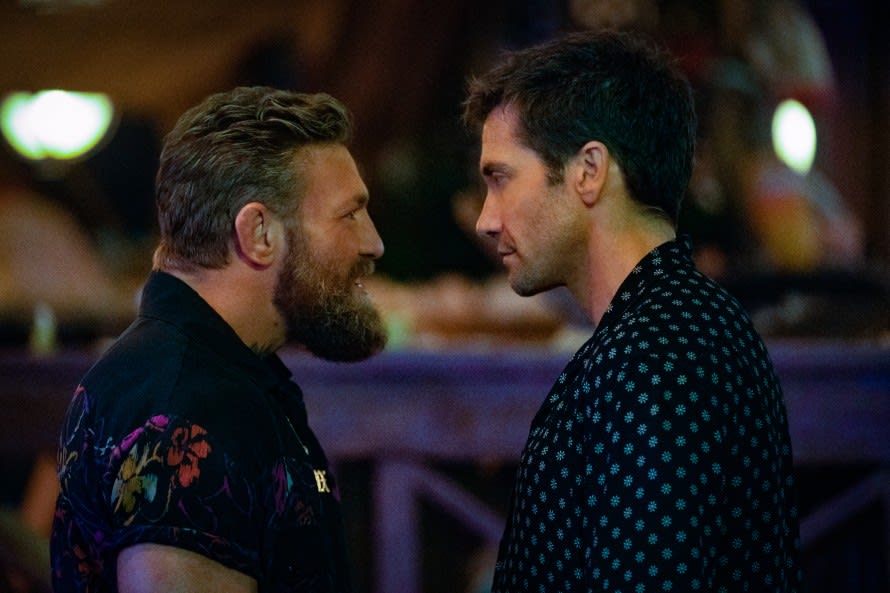Patrick Swayze's Road House is treasured dearly by many cinema lovers. With the original encompassing everything ridiculously wonderful about the '80s, the general response to the announcement of a remake can only be characterized as loudly negative. So much so that the official parting line from Prime Video is that Doug Liman and Jake Gyllenhaal's version shouldn't be considered a remake or reboot, rather a "retelling." Cop-out marketing bumf to be sure, but actually very apt. Obvious parallels between the 1989 and 2024 films exist, and the general gist of the original movie remains, but there are enough differentiates the two that, like eyebrows, they're sisters, not twins.
This time around, our Dalton (he's Elwood now, not James), played by Gyllenhaal, heads south to the Florida Keys (not Jasper, MO) following a UFC career to take over bouncing duties at a roadhouse. Unknown to Dalton, though, a local gang in cahoots with the sheriff has a target on the roadhouse, creating quite the kerfuffle for the former fighter.
Road House doesn't waste its time establishing a heartbeat for the film. We needn't truly know Dalton, his enemies or any other character in the film. A weak and generic plot involving gangs and real estate drives the movie forward, and, to Liman's credit, Road House never attempts to take itself seriously, at least any more than is required. Liman effectively whittles down the source material to the bare essentials: less butts, boobs and story, just leaving dudes beating the shit out of each other.
For some (yours truly included), that's enough for a movie like this. Every now and then, watching a film that rests solely on fight sequences, explosions and zesty quips delivered by Jake Gyllenhaal will more than satisfy the mind. But, objectively speaking, this only pays dividends if those inane qualities are done so well they outweigh the sheer lack of narrative substance, which is where Liman does fall short.
It's not the abilities of the actors that creates this problem, however; Gyllenhaal's physicality in the film shows off the extensive training he underwent, and obviously Conor McGregor needs no direction in this department. The fault of the issue can be traced to the way these sequences are filmed.
Liman captures the final fight between Gyllenhaal and McGregor through Dalton's perspective, as if the audience is playing Dalton in a video game. It's a clever and creative decision that feels especially fun given that an actual former UFC champion stands opposite, but to stitch together the fighting and to hide that it's not always Gyllenhaal in the metaphorical octagon, Liman employs some swishy CGI magic that's jerky in its rendering to say the least.
A lot of drama surrounded Road House's direct-to-streaming release, but Amazon may have done Liman a solid here. Those janky bits would have been far more noticeable on a massive screen in cinemas than on the average person's TV (or more realistically, laptop/tablet).
Maybe I'm just too much of a diehard for Gyllenhaal and mindless action films, and I also lack any attachment to the 1989 movie — but even with the unsettling CGI and complete lack of storytelling, I had a lot of fun with this movie. Liman takes the best of what '80s and '90s action has to offer, removing brains and leaving only sweaty bro brawn with a Gyllenhaal addition. Road House fills its runtime with scene chewing and outlandish action — it's a pretty good time.
